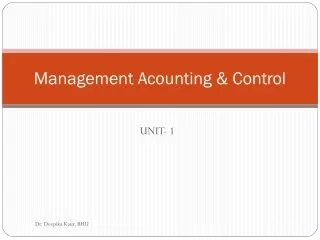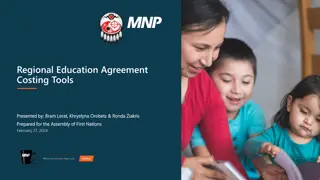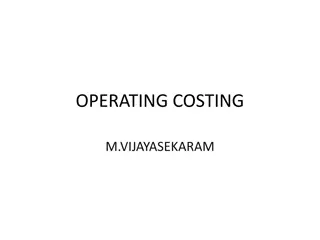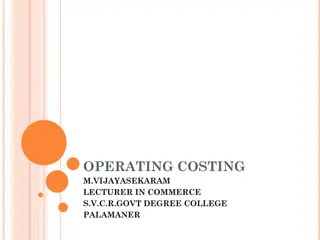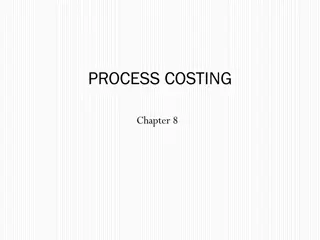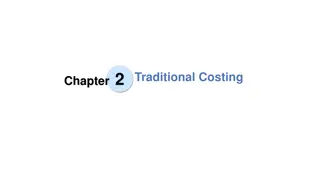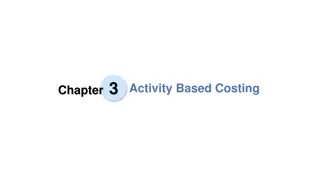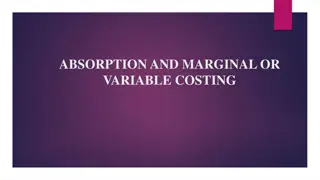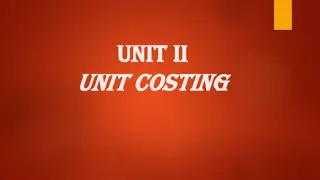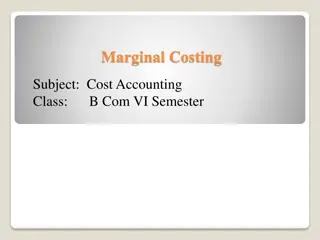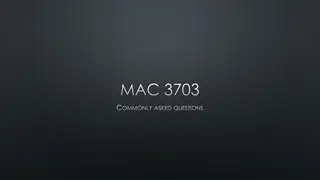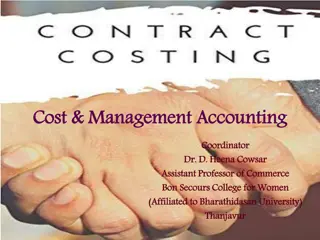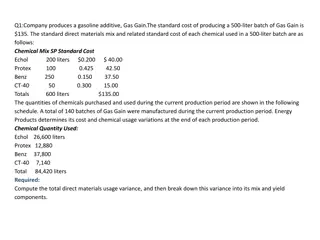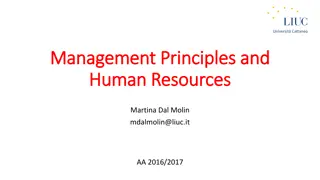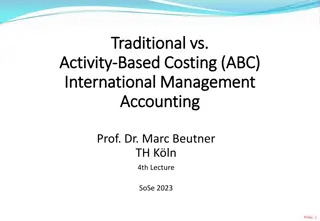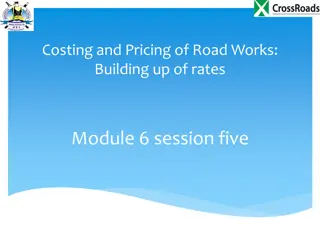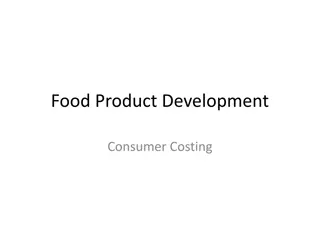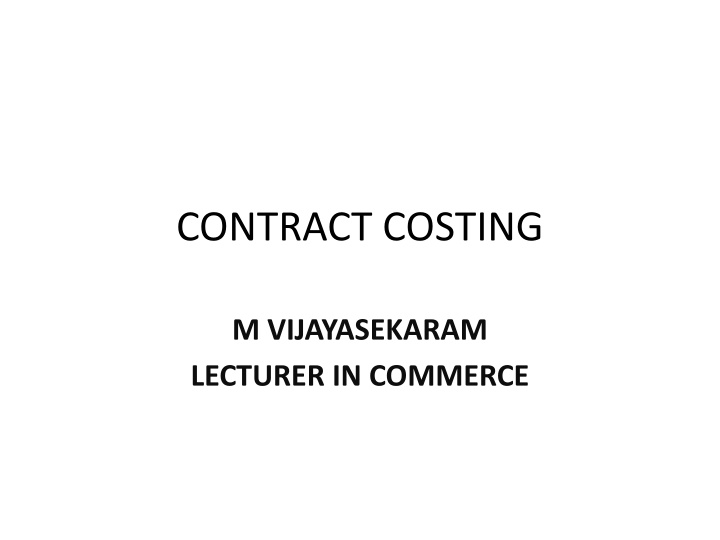
Job Costing and Contract Costing Methods
Learn about job costing and contract costing methods in accounting. Explore the unique features, procedures, and how costs and profits are ascertained for different types of projects. Master the preparation of job cost sheets and contract accounts for effective cost management.
Download Presentation

Please find below an Image/Link to download the presentation.
The content on the website is provided AS IS for your information and personal use only. It may not be sold, licensed, or shared on other websites without obtaining consent from the author. If you encounter any issues during the download, it is possible that the publisher has removed the file from their server.
You are allowed to download the files provided on this website for personal or commercial use, subject to the condition that they are used lawfully. All files are the property of their respective owners.
The content on the website is provided AS IS for your information and personal use only. It may not be sold, licensed, or shared on other websites without obtaining consent from the author.
E N D
Presentation Transcript
CONTRACT COSTING M VIJAYASEKARAM LECTURER IN COMMERCE
OBJECTIVES After studying this unit, you should be able to: define job costing and describe its special features explain the procedure adopted for costing purposes in case of job costing evaluate job costing as a method of cost ascertainment . prepare a job cost sheet define contract costing and describe its special features prepare contract account and ascertain the notional profit on uncompleted contracts explain how profit taken to profit and loss account is determined explain how work in progress is shown in balance sheet.
INTRODUCTION If a firm is engaged in producing homogeneous product, it uses unit costing method about which you studied in Unit 2. But, where a firm is engaged in undertaking small jobs involving different amount of material, labour and overhead costs such as automobile repair shop, interior decorators, furniture makers, etc., unit costing method cannot be applied. The method of costing used by them is known as 'job costing' which treats each job as a separate unit of cost. Under this method, costs are accentuated and analyzed job-wise. When, however, a firm undertakes big jobs like constructing a building, road, bridge, etc., which involve huge bums and long duration, it stops contract costing method of ascertaining cost and profit. The special feature of such jobs is that they may remain incomplete by the end of the accounting year. Hence, ascertainment of profit or loss has many complexities. In this unit, you will learn about both the methods in detail and study how cost and profit of small 'jobs and big projects (contracts) are ascertained. To be more specific, you will learn about the preparation of Job Cost Sheet and Contract Account.
JOB COSTING Job Costing refers to the method of ascertaining costs where product is manufactured or service is provided against specific order, as distinct from continuous production for stock and sale. Under this method, costs are collected and recorded for each job. or a batch of similar jobs, under a separate production order number. Each job has its own characteristics and needs special treatment. Take the example of a machine tool manufacturer or an automobile repair shop. Each order of machine or each repair job involves Different amount of materials, labour and overheads. Hence, it is necessary to accumulate the costs for each order or job so that its total cost can be determined and proper matching of costs and revenues can be made.
Definition and Characteristics The ICMA Terminology provides an excellent description of job costing which defines it as "that form of specific order costing which applies where work is undertaken to customers' special requirements and each order is of comparatively short duration. The work is usually carried out within a factory or work shop and moves through processes and operations as a continuously identifiable unit Thus, the special features relating to production and cost ascertainment in industries where job costing can be applied are : i) Each job is unique, specific and dissimilar. ii) Each job is undertaken to customer's special requirements and not for stock. iii) Each job is comparatively of a short duration. iv) Each job is capable of identification at all stages of production. v) Each job order is separately identified by a job order number. vi) There is no uniformity in the flow of production from department to department. Direct costs of labour, materials and expenses are booked directly against the job order. viii) Overheads are charged on the basis of predetermined rates.

